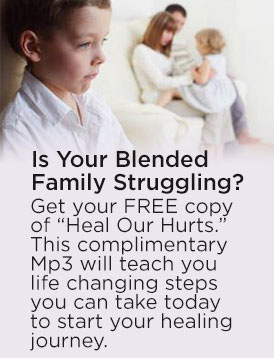by admin | Nov 9, 2015 | Uncategorized
The holidays are a time of More. More parties, more social gatherings, more celebrations… And more drinking. Many of the usual drinking rules are relaxed during the holiday season. Drinking in the daytime for example, and drinking at the workplace where office parties often add alcohol to the mix. More drinking and driving occurs during the holidays than at any other time of the year. Sometimes people who don’t normally drink much may indulge in more than they intended and trouble often follows.
It’s not true that increased drinking causes alcoholism—alcoholism is a disease with many “causes.” Just because someone drinks more frequently, or consumes more alcohol than they usually do, doesn’t mean he or she has become an alcoholic. But there are warning signs that drinking may be a problem, for example:
- Starting to drink earlier in the day.
- Increased drinking (drinking every day or every few days, or drinking increased quantities).
- Continuing to drink when they’ve “had enough.”
- Denying they’ve “had enough.”
- Urging others to “have one more” when they’ve said no thanks.
- Including alcohol in every activity.
- Always making sure there’s “enough” alcohol (buying excess liquor for gatherings).
- Refusing to discuss it when someone expresses concern about their drinking.
Alcoholism is a family disease. That means it affects not just the person who drinks, but everyone in the family—they’re called co-alcoholics, and they may need help as much as the alcoholic.

The most common symptom of alcoholism is denial that there’s a problem; the first step in recovery is admitting there might be a problem. Take the quizzes below and if there is a concern call a Christian counselor at the Center for Family Unity in San Diego. Or, if alcohol has caused a problem in your life during the holidays and you’d like to talk about it, don’t hesitate to call.
Twenty questions to determine if you might have a problem with alcohol.
- Do you lose time from work due to your drinking?
- Is drinking making your home life unhappy?
- Do you drink because you are shy with other people?
- Is drinking affecting your reputation?
- Have you ever felt remorse after drinking?
- Have you gotten into financial difficulties as a result of your drinking?
- Do you turn to lower companions and an inferior environment when drinking?
- Does your drinking make you careless of your family’s welfare?
- Has your ambition decreased since drinking?
- Do you crave a drink at a definite time daily?
- Do you want a drink the next morning?
- Does drinking cause you to have difficulty in sleeping?
- Has your efficiency decreased since drinking?
- Is drinking jeopardizing your job or business?
- Do you drink to escape from worries or troubles?
- Do you drink alone?
- Have you ever had a complete loss of memory as a result of your drinking?
- Has your physician ever treated you for drinking?
- Do you drink to build up your self-confidence?
- Have you ever been in a hospital or institution on account of drinking?
If you answered yes to three or more of these questions, you might have a problem with alcohol. A counselor at The Center for Family Unity is waiting to help you today.
Twenty questions to determine if you’re affected by the excessive drinking of someone close.
- Do you worry about how much someone else drinks?
- Do you have money problems because of someone else’s drinking?
- Do you tell lies to cover up for someone else’s drinking?
- Do you feel that if the drinker loved you, he or she would stop drinking, to please you?
- Do you blame the drinker’s behavior on his or her companions?
- Are plans frequently upset, or cancelled, or meals delayed because of the drinker?
- Do you make threats, such as, “If you don’t stop drinking, I’ll leave you”?
- Do you secretly try to smell the drinker’s breath?
- Are you afraid to upset someone for fear it will set off a drinking bout?
- Have you been hurt or embarrassed by a drinker’s behavior?
- Are holidays and gatherings spoiled because of drinking?
- Have you considered calling the police for help in fear of abuse?
- Do you search for hidden alcohol?
- Do you often ride in a car with a driver who has been drinking?
- Have you refused social invitations out of fear or anxiety?
- Do you sometimes feel like a failure when you think of the lengths you have gone to in order to control the drinker?
- Do you think that, if the drinker stopped drinking, your other problems would be solved?
- Do you ever threaten to hurt yourself to scare the drinker?
- Do you feel angry, confused or depressed most of the time?
- Do you feel there is no one who understands your problems?
If you answered yes to three or more of these questions, call The Center for Family Unity for San Diego family counseling immediately. Don’t live another day in bondage. www.thecenterforfamilyunity.com 619-884-0601
by admin | Nov 9, 2015 | Uncategorized
If we are going to bring our lives more fully into agreement with God and His kingdom, the primary thing we need is a burning conviction that God is good. I believe that the failure to understand and pursue this provision of God has led many people to die in the unnecessary tragedy of never having their God-given dreams and desires fulfilled.
Often we blame others around us for not supporting us in the pursuit of our dreams. The sober reality is that most dreams go unfulfilled because of the lack of favor (support) with God and man. We are responsible for choosing our actions and reactions.
We all seek that elusive quality of “happiness.” Here are some things you can place your awareness on and STOP so you can be happier.
- Impressing.What you have—your possessions, your accomplishments—don’t result in real relationships or lasting happiness.
- Blaming. Your response to any situation is your choice.Try making it a learning opportunity—taking responsibility is empowering.
- Controlling.It doesn’t help you feel good about yourself. Honor your boundaries, but make space for others’ needs and choices, too.
- Criticizing. We are all unique and different, not better or worse. Appreciate the differences instead of zeroing in on shortcomings.

- Whining. Complaining is ineffective, whereas asking for what you want is liberating.
- Clinging to what is known.When you’re feeling afraid or insecure, be willing to let go of the familiar, take a risk and try something new.
- Being Ungrateful.Stay aware of all the gifts and blessings that you do have. Express gratitude and happiness will follow.
- Lecturing. Another form of judging. Find more fun and empowering ways to share your knowledge.
- Negative Self-talk.Train yourself to notice your mind’s chatter. Working towards changing negative thoughts to positive ones will transform your life.
- Fear. Don’t let fear get in the way of progress. Whatever you’ve been dreaming, get going on it. “Feel the fear and do it anyway.”
If you find yourself stuck in any of the unproductive habits above, please call a family counselor in San Diego at the Center for Family Unity at 619-884-0601
by admin | Oct 9, 2015 | Uncategorized
“I don’t feel the same way toward my stepchildren as I do my biological children,” a stepmother recently admitted. “I feel guilty when I say that, but it’s the truth.” “That’s okay,” I replied. “The challenge comes in treating them the same, regardless of how you feel.”
It’s easier to love a child who you carried in your womb, nursed for a period of time, watched his first smiles, and heard his first words. There is a natural love that develops with your own child.

It’s different with stepchildren. They come to us at varying stages of life. Sometimes they enter our lives at a young age, other times they’re young adults or older. Oftentimes they come with their own feelings toward gaining a stepparent, and those feelings aren’t always good.
So why do we beat ourselves up as stepparents when we don’t have an automatic love for our stepchildren? Why do we put so much pressure on ourselves to have a perfect relationship with them from the beginning?
Perhaps society creates this image. Especially with moms, it’s assumed we can easily play out our maternal role, regardless of who’s on the other end. But that simply isn’t the case.
Relationships grow over time. And there are two parties involved in your step parenting relationship – you and your stepchild. You can influence your side of the relationship, but you have no control over many of the influences your stepchild is receiving.
So, you may feel a different love toward your stepchildren than your biological children, but you must strive to treat them equally. Stepchildren feel like outsiders when they’re treated as “less than” and will not integrate into a stepfamily when they sense unfairness.
A predictable outcome of parental favoritism is competition between siblings and sibling rivalry, which stepfamilies are set up for already. When siblings are close in age, parents must be even more diligent about how they treat each child.
That doesn’t mean you can never have one-on-one time with your child or you must spend the exact same amount of money on each one. Even in biological families, circumstances dictate how parents spend money and time with their children.
For a non-custodial parent, there’s nothing wrong with spending time alone with your children when they come to visit. But be sure to allow time with the rest of the family too. It’s also not unusual to spend more money on one child than another at certain times. During our kids’ high school years, my daughter required tutoring for several years. We spent hundreds of dollars getting her through high school math that we didn’t spend on the other kids.
The real issue with favoritism in stepfamilies, according to stepfamily authority Ron Deal, is “a heart issue, not a time or money issue.” As stepparents, our hearts feel differently toward our stepchildren than our biological children. But one of the hidden gifts of stepfamilies is learning to love our stepchildren as God loves us. We can choose love, even if we don’t feel it.
“But God demonstrates his own love for us in this: While we were still sinners, Christ died for us.” (Romans 5:8)
We didn’t deserve God’s love and grace. But He offered it anyway.
It might be easier to offer preferential treatment to your children, based on how you feel. But your stepchildren deserve equality. Will you commit to the high road of fairness?
How do you overcome the challenge of favoritism in your stepfamily? For support with Stepfamily issues please contact The Center for Family Unity at 619-884-0601.
by admin | Sep 9, 2015 | Uncategorized

10 Reasons To Use Therapeutic-Grade Essential Oils:
1) You can be a healer in your own home and take care of “life’s emergencies” with ease.
2) You save money and time.
3) You are provided with endless educational opportunities to learn more about essential oils, how and why they work, and how to use them more effectively.
4) You can create a home business doing something that you love, that will change people’s lives, and that has very low start-up costs. You also get lots of business support for free, and you gain valuable personal development skills.
5) You can reduce the toxic load in your body and in your home – plus, your house always smells great!
6) You have a way to reach financial freedom while serving others and without working 60+ hours/week.
7) You can offer others a natural solution – and give them hope when other avenues seem to be dead ends.
8) You can add delicious flavorings to food that also have a therapeutic benefit.
9) You find that you have more vitality, energy, and a clearer mind when using essential oils and essential oil-infused products.
10) You feel confident and empowered to care for your health and that of your family.
If you aren’t yet using essential oils, leave a comment below or call me at 619-884-0601 and I will personally get in touch with you soon! – Kellye from TheCenterforFamilyUnity.com
by admin | Sep 9, 2015 | Uncategorized
“Always tell the truth. That way, you don’t have to remember what you said.”
—Mark Twain
When it comes to lies—especially small, everyday kinds of lies—Mark Twain’s advice is right on the money. Lies always exact an emotional toll. They take energy to maintain and keep us from growing in ways that we need to, but may find uncomfortable.
They often have a way of backfiring, too, with one fib leading to another and ultimately costing us more than just energy. An inaccurate résumé may cost us a job offer, or a “touched up” image may cost us a new relationship.
But most importantly, lies keep us from experiencing each other’s humanity and vulnerability—and our own. What can you do when you find out your spouse has been lying? Lying is a symptom of deeper issues such as fear of intimacy or vulnerability. Shame about who we are gets in the way of showing up and speaking our truth in love; the humiliation of who we think we are overcomes who God intended us to be.
It is the truth that moves people. And it is the truth that we tell ourselves that moves us to improve our lives, not cling to our lies.
Below is a field guide to everyday lies. In each category, think of an example in your own life and rework the scenario using the truth. You might be surprised at the results.

Excuses
We give false excuses all the time: why we’re late, why we must refuse an invitation, why we didn’t call back, why we didn’t show up, why the work isn’t done.
What would happen if you told the truth? “I just can’t muster the courage to come to your party because I know my ex and her new husband will be there, and I’m still tender over our break-up.”
In revealing yourself to the host, you invite empathy and perhaps support for the real emotions of grief after the ending of a relationship—emotions that everyone can relate to and understand. Also, you remain trustworthy in the eyes of the host.
Shifting Blame
Bending the truth to avoid responsibility is common and devastating in both professional and personal life. No other kind of lie poisons relationships in quite the same way. By blaming another, we cover up areas that we might need to work on, places in our lives that need to change for us to move forward.
The most common motivations for this kind of blame shifting are fear and insecurity. When we don’t believe we deserve a second chance, we lie instead of admitting we’ve erred. Imagine the power of saying: “I’m responsible.” You may be surprised by the amount of appreciation you receive for taking responsibility.
When your kids lie they are trying to cover up fears. They need you to help them feel safe and they need to experience consequences rather than punishment.
Image Touch-Ups
Whether it’s dropping a few years from your age or creating fictional life experiences and skills, this kind of lie usually involves those things about which we’re most insecure—age, weight, education, salary, job credentials.
As we grow in our ability to appreciate ourselves and to work with intention on areas we wish to improve, these kinds of embellishments decline. Higher self-esteem means we don’t have to be perfect or fascinating or striking to be lovable.
Omitting the Truth
Lying by withholding information can be wounding to the person who is being misled. For example, not telling a prospective business partner that you are bankrupt and tens of thousands of dollars in debt could lead the person to make a decision they wouldn’t ordinarily make—and might regret.
Putting all the information on the table shows honor and respect for others who are making decisions based on your information.
Lying is a draining, negative way to use our brain and skills. It demands huge amounts of emotional energy, which we would be much better off using to improve our life.
Help is Here
The counselors at The Center for Family Unity can help you unwind the lies and discover the underlying truth by creating a space of safety that allows you, your partner and your family to express your fears and learn how to love yourself and each other. We can give you the necessary tools to confront and deal with the root issue when your children lie.
Call today! Waiting only prolongs the pain. We are waiting for you. 619-884-0601 www.TheCenterforFamilyUnity.com













